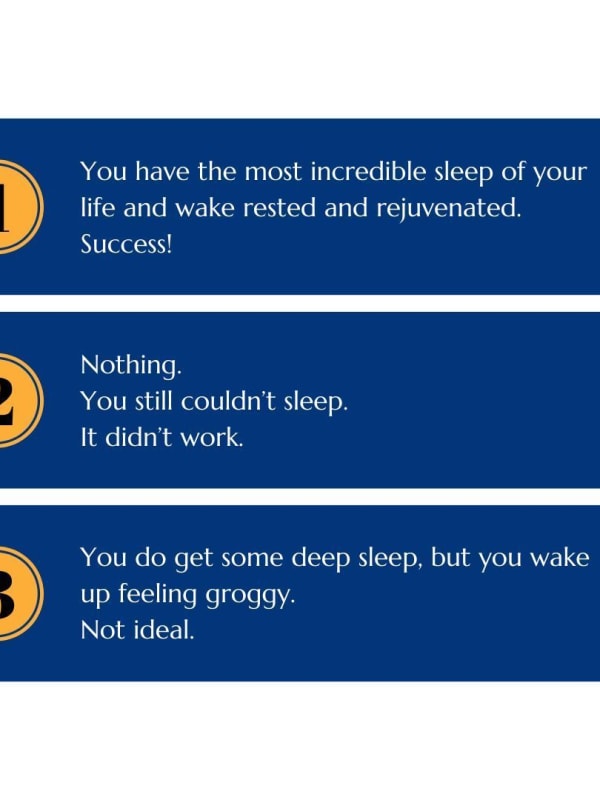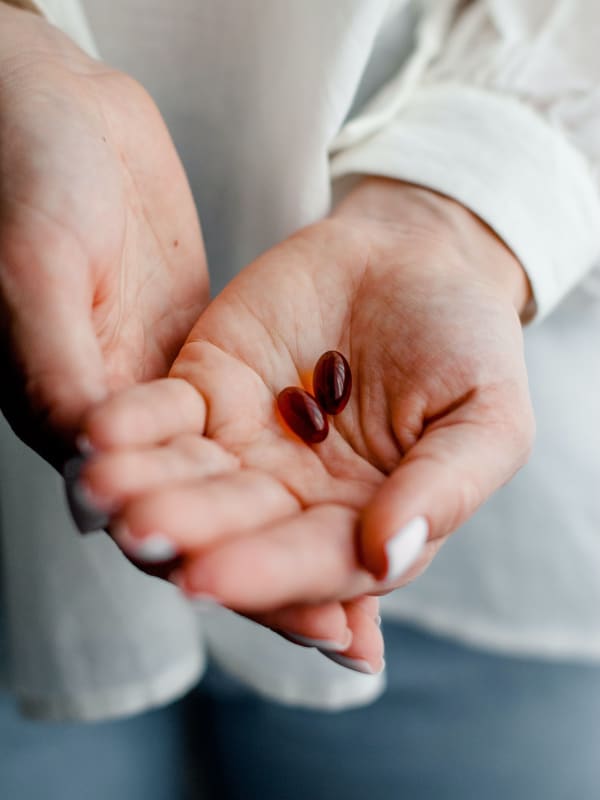Rily's Guide To Supplementing Melatonin

Rily's Guide To Supplementing Melatonin
It's undeniable that a good night’s sleep is essential for our physical, mental, and emotional health... but what if you're not getting it? Melatonin could be your answer.
Disclaimer: This is not a substitute for medical advice. These statements have not been evaluated by Health Canada. Consult your primary care physician before changing your supplement routine
I’m sorry if the fact that you’re reading this means that you’re having trouble sleeping. But if you have decided to supplement melatonin, you may be closing in on a solution! It’s not going to solve everyone’s insomnia woes, but for many people it certainly does the trick, especially when used the right way.
This guide will provide everything you need to know to get started supplementing melatonin for sleep, in a convenient FAQ format.
For more of a deep dive into melatonin’s fascinating history and the science of its benefits beyond sleep, please see our article, Melatonin: So Much More Than a Sleep Hormone.

For best results, melatonin should be taken within one hour of your bedtime.
The average effective dose for most people, and a great starting point if you’re new to it, is 3 milligrams. But, of course, everyone is different.
Typically after trying melatonin for the first time, with 3 milligrams or otherwise, one of three things will happen:
If 3 mg makes you groggy the following day, try halving the dose to 1.5 mg the next night and halving it again the night after if necessary.
If 3 mg doesn’t do anything, double it to 6 the next night. If 6 mg still doesn’t make an appreciable difference in your sleep quality, triple it to 18-20 mg the next night.
Sublingual tablets that dissolve under the tongue are among the most commonly available melatonin supplements and can be easily snapped in half or quartered to change the amount.
Liquid melatonin can make it even easier by offering fractions of a milligram of melatonin in each drop, so you can really fine-tune your dose. But quite honestly, it doesn’t often come to that. For many people, experiencing the benefits of melatonin and finding an effective dose happens the first or second night.

Absolutely!
Melatonin has an excellent safety profile and has been studied in doses as high as 2,000 mg. You likely won’t even need 20 mg. Down in that more reasonable dosage realm, melatonin also appears safe for adults to use nightly on a long-term basis.
Pregnant women, developing children and youth should be cautious when considering melatonin to address their sleep issues and consult a physician before using it. Melatonin is a hormone, and supplementing it may impact the body’s natural development during puberty or pregnancy.
Since melatonin boosts certain parts of immune function, those with autoimmune conditions should also exercise caution in supplementing it.
Melatonin can interact with alcohol and some medications, so be sure to consult a pharmacist if you are unsure about combining melatonin with any meds you may already be taking

This has been well-studied over the years, and the answer is "No."
Supplementing melatonin does not cause dependence or stop the body from producing its own, even if used regularly.
It may even help to rebalance your natural circadian rhythms so that continued supplementation of melatonin isn’t even necessary.
Some people report vivid dreams, nightmares, or a combination of the two from using melatonin. Of all the decades of research and thousands of studies on melatonin, it is still unclear exactly why this might be.
In some cases, people may find that it makes them wired instead of sleepy, and in very rare cases, supplementing melatonin may cause nausea or headache the next day.
Sometimes, these more infrequent side effects can be remedied by dropping the dose, but it is true that some of us, for whatever reason, might respond more to other effective sleep aids.
Natural remedies like valerian, passionflower, lemon balm, skullcap, lavender, ashwagandha and chamomile may be helpful alternatives if melatonin isn’t a good fit for you.

The half-life of melatonin is under two hours, but larger doses might not be fully cleared from the body until six to ten hours after taking it.
We want it fully metabolized by morning so that we don’t wake up in a mental fog, so again, while melatonin is very safe, it is wise to take only as much as you need.

Yes! Melatonin does indeed seem to help people adjust to different time zones.
It is recommended to take 0.5 to 5 mg around your general bedtime (typically between 10 p.m. and midnight) in the destination time zone.
Used in this way just before you get where you’re going, it can help your body adapt to its new internal clock time.
The two main types of supplements are regular immediate-release melatonin and timed-release capsules. In the case of the former, melatonin may be taken in the form of gummies, sublingual tablets that dissolve under the tongue, capsules, tablets, or liquids.
Functionally, the sublingual tablets and liquids will take effect a bit more immediately, but they are ultimately all very similar in use and impact.
Across brands and types, the dose of melatonin is the most critical factor. Since even the good ones are relatively affordable, recommend choosing a third-party tested brand to ensure the dose matches the label accurately and consistently.
It’s also a good idea to keep an eye on the non-medicinal ingredients, as some contain lactose and other ingredients you may be avoiding.
If someone’s issue is not necessarily getting to sleep but staying asleep, sustained release melatonin may be a helpful tool that does operate differently from the rest. You may want to take time-release capsules a little earlier, either with dinner or two hours before bed.
Yes! Plants, animals, and fungi make and use melatonin just like humans. Some foods we eat are extra-rich in this wonderful night-time hormone. Wherever possible, choosing food over supplements is always a good idea.
Fantastic food sources include:
- Fruits: tart cherries, strawberries, and grapes
- Grains: non-glutinous black rice, corn, and oats
- Animal foods: eggs and fish
- Plant foods: tomatoes, peppers, mushrooms and pistachios
Any of these foods alone or in combination, eaten with or after dinner, might make the difference between tossing and turning for hours and dropping into deep rest soon after your head hits the pillow.
Sources
Andersen, L. P., Gögenur, I., Rosenberg, J., & Reiter, R. J. (2016). The Safety of Melatonin in Humans. Clinical drug investigation, 36(3), 169–175. https://doi.org/10.1007/s40261-015-0368-5
Fatemeh, G., Sajjad, M., Niloufar, R., Neda, S., Leila, S., & Khadijeh, M. (2022). Effect of melatonin supplementation on sleep quality: a systematic review and meta-analysis of randomized controlled trials. Journal of neurology, 269(1), 205–216. https://doi.org/10.1007/s00415-020-10381-w
Harpsøe, N. G., Andersen, L. P., Gögenur, I., & Rosenberg, J. (2015). Clinical pharmacokinetics of melatonin: a systematic review. European journal of clinical pharmacology, 71(8), 901–909. https://doi.org/10.1007/s00228-015-1873-4
Herxheimer, A., & Petrie, K. J. (2002). Melatonin for the prevention and treatment of jet lag. The Cochrane database of systematic reviews, (2), CD001520. https://doi.org/10.1002/14651858.CD001520
Meng, X., Li, Y., Li, S., Zhou, Y., Gan, R. Y., Xu, D. P., & Li, H. B. (2017). Dietary Sources and Bioactivities of Melatonin. Nutrients, 9(4), 367. https://doi.org/10.3390/nu9040367
Nordlund, J. J., & Lerner, A. B. (1977). The effects of oral melatonin on skin color and on the release of pituitary hormones. The Journal of clinical endocrinology and metabolism, 45(4), 768–774. https://doi.org/10.1210/jcem-45-4-768
Sack, R. L., Hughes, R. J., Edgar, D. M., & Lewy, A. J. (1997). Sleep-promoting effects of melatonin: at what dose, in whom, under what conditions, and by what mechanisms?. Sleep, 20(10), 908–915. https://doi.org/10.1093/sleep/20.10.908






